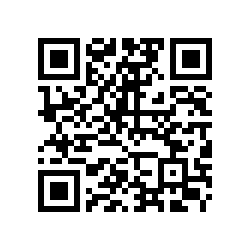Penggunaan Factory Method Design Pattern Pada Framework Flask di Dalam Aplikasi Dashboard
(1) Universitas Kristen Satya Wacana, Indonesia
(2) Universitas Kristen Satya Wacana, Indonesia
(*) Corresponding Author
Abstract
Full Text:
PDFReferences
B. Bach et al., “Dashboard Design Patterns”, IEEE Transactions on Visualization and Computer Graphics, vol. 29, no. 1, pp. 342–352, 2023.
M. Aniche, J. W. Yoder, and F. Kon, “Current Challenges in Practical Object-Oriented Software Design”, IEEE/ACM 41st International Conference on Software Engineering: New Ideas and Emerging Results (ICSE-NIER), pp. 113–116, 2019.
X. Xu, H. Hu, N. Hu, L. Xiao, and W. Ying, “Human Resource Management System Based on Factory Method Design Pattern”, International Conference on Information Computing and Applications, pp. 437–444, 2012.
I. André A. S., G. Eduardo M., P. Sandy M., C. Joelma, and Q. Marcos G., “An approach for applying Test-Driven Development (TDD) in the development of randomized algorithms”, Journal of Software Engineering Research and Development, vol. 9, no. 6, pp. 1–31, 2018.
M. R. Mufid, M. U. H. Al Rasyid, I. F. Rochimansyah, and A. Rokhim, “Design an MVC Model using Python for Flask Framework Development”, International Electronics Symposium (IES), pp. 214–219, 2019.
M. Riesener, C. Dölle, H. Lauf, and G. Schuh, “Framework for an agile, databased development”, 31st CIRP Design Conference 2021, pp. 343–348, 2021.
M. A. Mascheroni, E. Irrazábal, and G. Rossi, “Continuous Testing Improvement Model”, IEEE/ACM International Conference on Automation of Software Test (AST), pp. 109–112, 2021.
P. Zimmerer, “Strategy for Continuous Testing in iDevOps”, IEEE/ACM 40th International Conference on Software Engineering: Companion Proceedings (ICSE-Companion), pp. 532–533, 2018.
D. Fucci, H. Erdogmus, B. Turhan, M. Oivo, and N. Juristo, “A Dissection of the Test-Driven Development Process: Does It Really Matter to Test-First or to Test-Last?”, IEEE Transactions on Software Engineering, vol. 43, no. 07, pp. 597–614, 2017.
C. Wang, F. Pastore, A. Goknil, and L. C. Briand, “Automatic Generation of Acceptance Test Cases From Use Case Specifications: An NLP-Based Approach”, IEEE Transactions on Software Engineering, vol. 48, no. 2, pp. 585–616, 2022.
DOI: http://dx.doi.org/10.30645/j-sakti.v7i2.677
Refbacks
- There are currently no refbacks.
J-SAKTI (Jurnal Sains Komputer & Informatika)
Published Papers Indexed/Abstracted By:
Jumlah Kunjungan :











